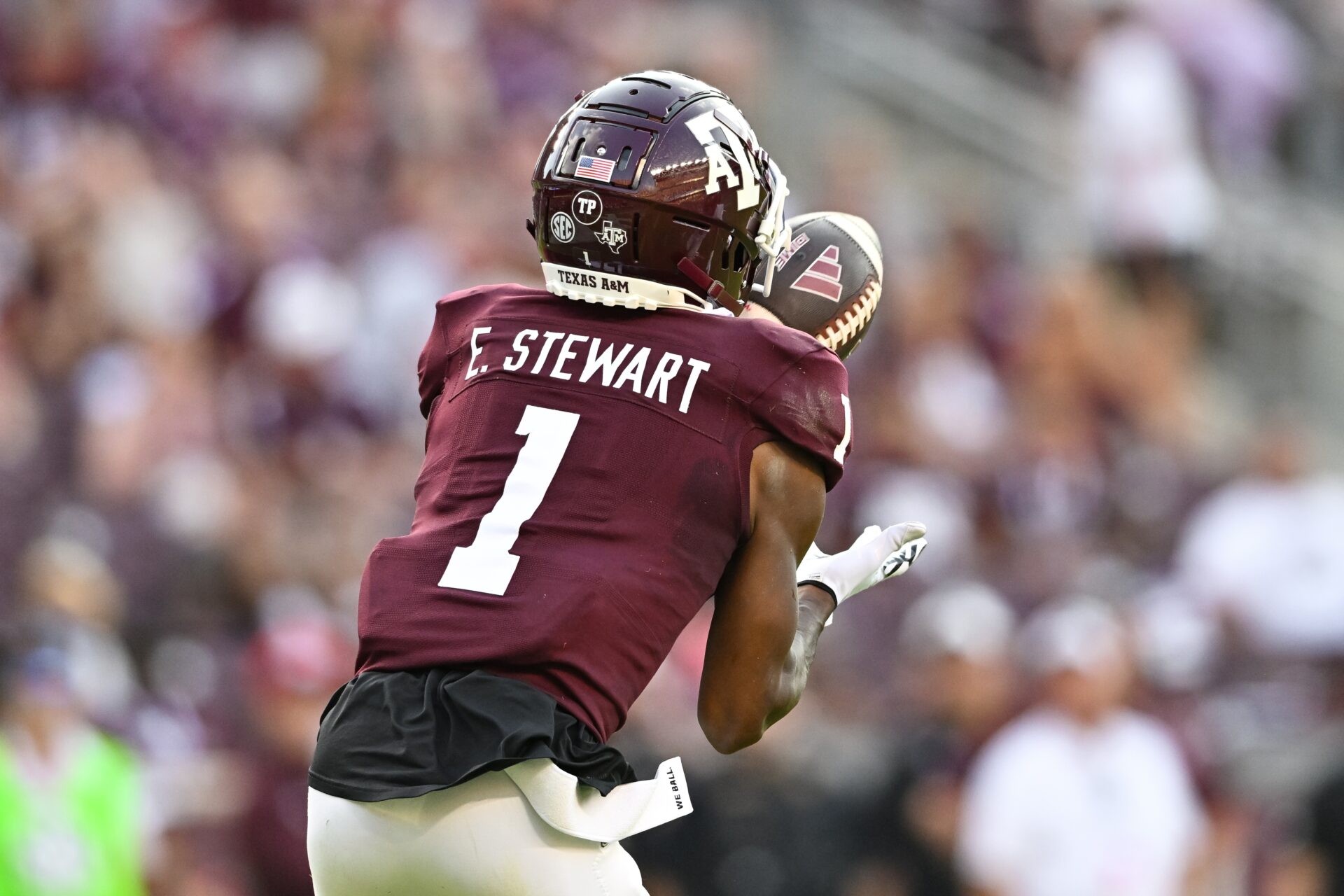In the era of Name, Image and Likeness, it can be easy to see promises of large payments and assume that the country’s best college athletes are making millions, especially at larger schools. However, as former Texas A&M Aggies wide receiver Evan Stewart pointed out Monday, that might not always be the case.
Former Texas A&M Wide Receiver Evan Stewart Speaks Candidly About NIL Payments
In an Instagram reply to On3 correspondent Hayes Fawcett’s Instagram post, Evan Stewart dropped a piece of information that should turn heads.
The reply explained that Stewart, a former five-star recruit, never received any NIL money from the Aggies.
Texas A&M WR Evan Stewart on @Hayesfawcett3‘s latest IG post😳
“I saw it coming freshman year when I didn’t get paid a dollar from a&m but ‘slice bread’ had yall thinking we was all millionaires”https://t.co/5Sz3Yba9ea pic.twitter.com/2JGs6bjZuA
— On3 (@On3sports) December 4, 2023
Fawcett’s post was a quote from Aggie defensive back Bobby Taylor saying how two years ago, it would have been crazy to think that Jimbo Fisher would be fired and half of the recruiting class would transfer.
MORE: College Football Transfer Portal Tracker
In just 18 games as a freshman and sophomore, Stewart hauled in 91 passes for 1,163 yards and six touchdowns. Both a major recruit and major contributor, Stewart would have seemingly been set up nicely with a strong NIL package.
His reply, however, seems to imply that simply wasn’t the case for Stewart in College Station.
Implications of Stewart’s Statement
The reference to “slice bread” here is likely one to former head coach Jimbo Fisher, who was lauded as an amazing hire but ultimately disappointed in College Station. Fisher will be paid a $77 million buyout as part of his performance-based firing from the university. Stewart alleges that Fisher furthered the notion that players were making lots of money off of Name, Image, and Likeness.
That is often the case. It has been well-documented that certain high-performing players or those with strong social media have received payments in excess of $1 million from companies and collectives.
MORE: What is NIL?
Stewart’s statement, however, shines light on an issue I’ve been warned about by several individuals close to collectives and college players. Fans rarely see the final numbers related to NIL. No law says players must prove their income matches what was promised.
Raising funds is only part of the equation for running a healthy collective. Up until now, however, there has been little information about which schools have strong organizational skills within their collectives. Collectives can promise money to recruits, transfers and players, but if those players spend an entire year on the field and don’t receive promised payments, that information will start to spread.
This isn’t the first instance of such a statement, even within the SEC. Last year, Jaden Rashada was famously released from his National Letter of Intent to Florida after a 4-year, $13 million pledge from Gator Collective fell through.
There’s a belief among some collectives that a few schools, including some in the SEC, are over-promised and under-delivered when it comes to NIL funding for their athletes. Stewart seems to imply Texas A&M could be in this group.
As the transfer portal period opens Monday, watch to see if certain schools are losing more recruits than others and if there are any patterns among the defections. After two and a half years of NIL, schools with fewer donations but stronger organizations among their collective(s) could finally see tangible results in recruiting and the portal.
On the other hand, if teams aren’t delivering on their promises, their recruiting will suffer. Stewart’s remarks bring to light a tangible problem in college football


